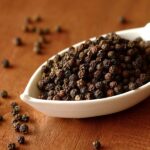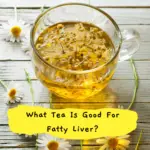A meal plan for fatty liver is a carefully chosen diet that helps reduce fat in the liver and supports liver health. It focuses on eating healthy, low-fat foods like vegetables, fruits, whole grains, lean proteins, and healthy fats. The goal is to avoid foods that can make liver problems worse, like sugary drinks, fried foods, and processed snacks. By following a meal plan designed for fatty liver, you can help your liver recover and improve your overall health.
Foods to Include in Your Fatty Liver Meal Plan
When creating a meal plan for fatty liver, it’s important to include foods that help reduce liver fat, improve liver function, and support overall health. Here are some of the best foods to include:
- Leafy Greens:
- Examples: Spinach, Kale, Arugula
- Benefits: Rich in antioxidants and fiber, these greens help detoxify the liver and reduce inflammation.
- Fatty Fish:
- Examples: Salmon, Mackerel, Sardines
- Benefits: High in omega-3 fatty acids, fatty fish helps reduce liver fat and inflammation.
- Whole Grains:
- Examples: Oats, Brown Rice, Quinoa
- Benefits: Whole grains are high in fiber, which supports digestion and helps control blood sugar levels, reducing the risk of fat accumulation in the liver.
- Nuts and Seeds:
- Examples: Walnuts, Flaxseeds, Chia Seeds
- Benefits: These are rich in healthy fats and antioxidants, which help reduce inflammation and support liver health.
- Olive Oil:
- Benefits: A healthy fat that can help reduce liver fat and improve insulin sensitivity.
- Fruits:
- Examples: Berries, Apples, Citrus Fruits
- Benefits: Low in sugar and high in fiber and antioxidants, fruits like berries help protect liver cells and support overall liver function.
- Vegetables:
- Examples: Broccoli, Brussels Sprouts, Carrots
- Benefits: Vegetables are low in calories and high in nutrients, supporting liver detoxification and reducing fat accumulation.
- Lean Proteins:
- Examples: Skinless Chicken, Turkey, Tofu
- Benefits: Lean proteins are low in fat and help build muscle while supporting liver health.
- Green Tea:
- Benefits: Rich in antioxidants called catechins, which help improve liver function and reduce fat storage in the liver.
Meal Plans for Fatty Liver
Creating a meal plan for fatty liver involves focusing on nutrient-dense, low-fat foods that support liver health and reduce fat accumulation. Here are some example meal plans that can help manage fatty liver:
| Example | Meal | Foods Included |
|---|---|---|
| Example 1: A Balanced Day | Breakfast | Oatmeal with fresh berries (blueberries, strawberries), walnuts, green tea with lemon (unsweetened) |
| Lunch | Grilled chicken breast, spinach and kale salad, olive oil and lemon dressing, small serving of quinoa | |
| Snack | An apple or cucumber slices with hummus | |
| Dinner | Baked salmon, steamed broccoli and carrots, brown rice or small baked sweet potato | |
| Dessert (Optional) | Small bowl of mixed berries or a piece of dark chocolate | |
| Example 2: Plant-Based Focus | Breakfast | Smoothie with spinach, kale, avocado, chia seeds, unsweetened almond milk, whole-grain toast |
| Lunch | Lentil and vegetable soup (carrots, celery, tomatoes), mixed greens with olive oil and vinegar dressing | |
| Snack | Handful of almonds or a piece of fruit (pear or orange) | |
| Dinner | Stir-fried tofu with mixed vegetables (broccoli, bell peppers, onions), brown rice or quinoa | |
| Dessert (Optional) | Small serving of sliced apples with cinnamon | |
| Example 3: Mediterranean-Inspired | Breakfast | Greek yogurt (plain) with honey, chia seeds, fresh berries, whole-grain bread with avocado |
| Lunch | Grilled turkey breast, Mediterranean salad (cucumbers, tomatoes, olives, feta cheese), olive oil dressing, farro or whole-grain bread | |
| Snack | Small bowl of mixed nuts or a piece of fresh fruit | |
| Dinner | Baked cod, roasted Brussels sprouts, sweet potato wedges, mixed greens with lemon and olive oil | |
| Dessert (Optional) | Small piece of dark chocolate or a few slices of watermelon |
These example meal plans for fatty liver provide a variety of nutritious options that help reduce liver fat, improve liver function, and support overall health. By incorporating these meals into your diet, you can take significant steps toward managing fatty liver disease effectively.
What Is the Best Diet Plan for Fatty Liver?
The best diet plan for fatty liver focuses on reducing liver fat, improving liver function, and promoting overall health. This diet plan emphasizes nutrient-dense, whole foods while avoiding processed foods, added sugars, and unhealthy fats. Here’s a comprehensive guide to the best diet plan for managing fatty liver:
| Diet Plan Component | Description | Examples |
|---|---|---|
| Focus on Whole Foods | Minimally processed foods that provide essential nutrients for liver health. | Fresh fruits and vegetables, whole grains like oats and quinoa, lean proteins like chicken, turkey, fish, healthy fats from nuts, seeds, and olive oil. |
| Increase Fiber Intake | Fiber supports digestion, blood sugar control, and reduces liver fat. | Whole grains (oatmeal, brown rice), vegetables (broccoli, spinach), fruits (apples, berries), legumes (lentils, beans). |
| Include Healthy Fats | Healthy fats reduce inflammation and liver fat. | Fatty fish (salmon, mackerel), nuts (walnuts, almonds), seeds (flaxseeds, chia seeds), olive oil. |
| Limit Added Sugars and Refined Carbohydrates | Reducing sugar and refined carbs helps prevent fat buildup in the liver. | Avoid sugary drinks, sweets, and refined grains like white bread. Choose whole fruits and whole grains instead. |
| Opt for Lean Proteins | Lean proteins provide essential amino acids without excess fat. | Skinless chicken, turkey, tofu, fish, legumes like beans and lentils. |
| Stay Hydrated | Hydration supports liver function and overall health. | Water, herbal teas (like green tea), low-calorie beverages. |
| Practice Portion Control | Eating in moderation helps prevent overeating and weight gain. | Use smaller plates, pay attention to hunger cues, avoid large portions, especially of high-calorie foods. |
In conclusion, managing fatty liver disease through a balanced diet is crucial for improving liver health. Focus on whole, nutrient-dense foods like vegetables, lean proteins, healthy fats, and whole grains while avoiding added sugars and unhealthy fats. Staying hydrated and practicing portion control also play key roles in supporting liver function and maintaining a healthy weight. By consistently making these dietary changes, you can reduce liver fat, improve overall health, and effectively manage fatty liver disease.


